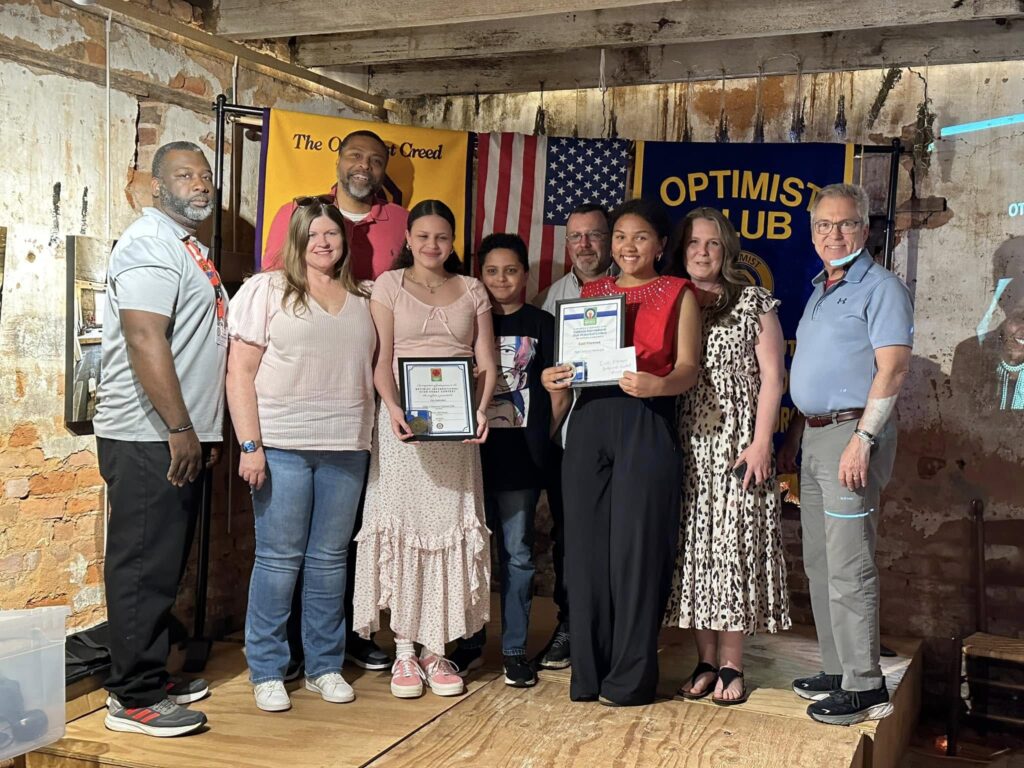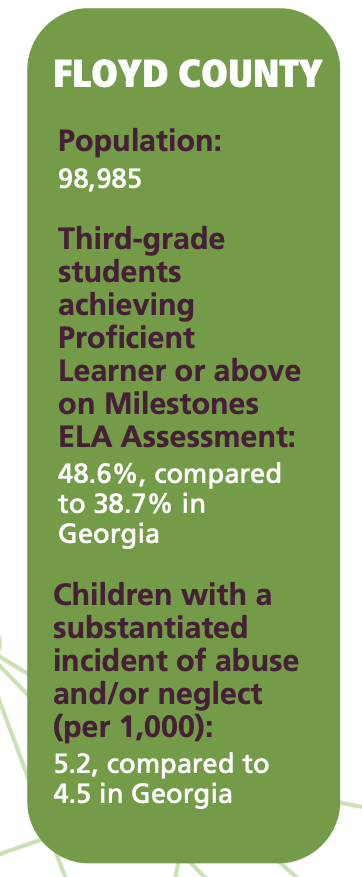Prompting Systems Change in Rome-Floyd County
Print This Post

 By Jennifer Jolly
By Jennifer Jolly
Executive Director, Rome-Floyd County Commission on Children and Youth
Rome-Floyd County Commission on Children and Youth is focused on gathering community partners and proposing potential solutions centered on improving school success and strengthening the family bond to reduce child abuse and neglect. We’re looking at data and patterns in the county to guide our work—while also guarding against creating initiatives that end up being a “Band-Aid” solution or perpetuating the problem.
Our Collaborative spent time in November with the Civic Health Index, homing in on the section reporting on the confidence Americans have in public and private institutions. Our Collaborative is seeing more clearly what we mean by systems change. If the systems our families need to engage with are perceived as untrustworthy and people have lost confidence in them, then those systems need to change. Our Collaborative is embracing the process of exploring and learning more about how we can leverage our collective energy and process to spark change in the systems we and our residents engage with. We’ve appreciated the process of being reminded of Georgia Family Connection’s structure and charge to remove obstacles that prevent our hard-working families and communities from thriving.
We don’t simply look at an indicator that improves or worsens in a moment in time. We study trend data to explore patterns and ask questions to discover root causes. For instance, third-grade reading proficiency can paint a picture of a student’s projected trajectory. In Floyd and other counties, school systems are reporting dismal ELA scores on Georgia Milestones. Things are not much better by the time students reach eighth grade.
The third-grade reading proficiency metric reveals there are patterns that are depleting, hindering, and interrupting human development enough to impact the ability to learn—which is then reflected in test scores. Early adverse childhood experiences yield patterns of mental health struggles, substance use and addiction, and neglect and abuse. To truly address issues impacting our community and improve well-being outcomes, we must go further upriver. Georgia Family Connection is designed to do just that.
The structure and support Georgia Family Connection Partnership (GaFCP) provides allows us, at the county level, to engage in the complex work of disciplined collaboration aimed at prompting systems change. The Georgia legislature’s allocation to Family Connection facilitates this change, catalyzing work in all 159 counties. Collaboration can often be a nebulous concept and process, so I appreciate the structure Family Connection provides for disciplined collaboration to keep us on track.
Through years of working with organizations, being a part of the foster and adoptive community, and working inside systems, I know so many organizations and systems that exist to try to change outcomes for youth and families in crisis are often in crisis themselves. Our systems and organizations must adopt changes to become places where people can function and thrive and receive services that will improve their outcomes. My dream is for our Collaborative members to work together to spark and scaffold simultaneous changes in organizations in our community in a more trauma- and poverty-informed direction, and to increase trust and become even more effective in supporting and delivering critical services to our youth and families.
Visit Rome-Floyd County Commission on Children and Youth’s website and Facebook page.
To find out more, contact me at 706-844-4952 or rfcccy1989@gmail.com.
